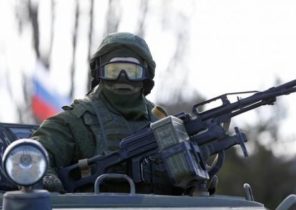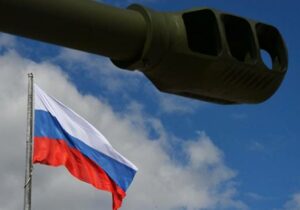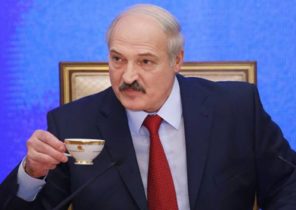In June, China held a virtual conference on the implementation of the initiative “One belt, one road”. According to the leader of China XI Jinping, the high-level meeting, which was held by the Minister of foreign Affairs of China Wang Yi (Wang Yi), was “the opportunity to discuss the collective response to the pandemic covid-19, to strengthen cooperation in the framework of the initiative “One belt, one road” and to strengthen international solidarity.”
In this virtual conference was attended by Ministerial-level officials from 25 countries, which is a testimony to the huge infrastructure and investment value of this project. In it took part the Director General of the world health organization, who once again made a statement about the need to transform the initiative “One belt, one road” in the “present silk road of health” — this was the Central idea of the si attempts to position China as a global leader in the field of health.
Many drew attention to the fact that in this virtual meeting lacked one man, Minister of foreign Affairs of Russia Sergey Lavrov. For the participants of the meeting, Lavrov has prepared a written statement, and representative of Russia in it was the Ambassador-at-large.
In truth, Russia can hardly be called a full-fledged participant of this meeting. Although Russia and China for many years speak about their close relationship and commitment to this project, Russia has long been an “absent partner.” Meanwhile, Moscow’s unwillingness to send on another forum of official of comparable rank indicates subtle changes in the attitude of Moscow no longer feels obligated to bow down to the initiative of “One belt, one road”. This puts China in a difficult position. Although Beijing continues to implement its infrastructure and investment projects in the backyard of Russia and undermine its influence in the former Soviet Union, from Russia, he needs at least tacit acceptance of the initiative. The last thing I would like to Beijing is Russia’s negative reaction to the “One belt, one road”, especially when you consider that currently, many other partners in China began to oppose this initiative. In addition, any step back taken by Moscow, will demonstrate to the United States and Europe, the fragility of the Russian-Chinese Alliance.
The lack Lavrov on this virtual conference demonstrates what actually are the interests of Russia. “Russia is not a part of the initiative “One belt, one road”. It is ready to support the global aspirations of China only so long as it is in its own interests,” said Igor Denisov, senior researcher, Moscow state Institute of international relations.
This view contradicts the official version regarding the initiative “One belt, one road”, which Russia and China for a long time actively promoted. Since 2014, Beijing has consistently represented Moscow as its closest partner. In 2019 the Chinese influential analytical center named Russia as a partner, to the greatest extent involved in the implementation of this program, putting her the highest marks for “political coordination” and “program compatibility”. Even in the context of the current pandemic coronavirus, which caused friction along the land border between the two neighbors, Chinese state media continued to promote the idea of expansion of ties between China and Russia in the framework of the initiative “One belt, one road”, because these connections will lead to an increase in China’s trade with Europe.
For its part, Russia rarely refuses the opportunity to demonstrate their ties with China. President Vladimir Putin regularly participates in the forum of “One belt, one road”, which is organized by Beijing. At last year’s meeting of the discussion club “Valdai” Putin for the first time called Russia’s relations with China, “allied” and characterized by “an unprecedented level of trust and cooperation”. Initially, Putin has called for economic and political cooperation with the initiative “One belt, one road”, with an emphasis on its compatibility with the Russia-led Eurasian economic Union. In 2015 the two countries signed a landmark agreement for the integration of these two initiatives.
But despite public statements about the harmonization of large-scale foreign projects, XI and Putin, there is very little visible evidence that Russia is the official partner of the initiative “One belt, one road”. All of the 40 transportation projects that the Eurasian economic Union invited China in 2017, was rejected by the Chinese side. By 2019, China is not even decided which of the projects of the Union deserve to be part of the initiative “One belt, one road”. In July 2020, a senior Russian government official said in an interview with Bobo Lo (Bobo Lo), research fellow, Lowy Institute (Lowy Institute) that since the official statement about the integration of the two initiatives, virtually nothing has been done.
The strategic ties that exist between Russia and China exist mainly outside of the initiative “One belt, one road”, despite the fact that both parties say otherwise. Yamal LNG, a project for the extraction, liquefaction and supply of natural gas in the North of Russia, is a good example. In 2016, the silk road Fund — China investment Fund engaged in investments in the projects “one belt, One road” — has acquired a 9.9% stake in this project, which then became positioned as part of the so-called “Polar silk road”. However, Luo said in an interview: “Yamal LNG plays virtually no role in the initiative of “One belt, one road”. It’s just another joint project of China and Russia”.
Meanwhile, China is now able to access key strategic sectors of the Russian economy as no one could not imagine ten years ago. Russia desperately needs Chinese investment to fill the void left behind by Western companies, when the West imposed anti-Russian sanctions in 2014. Despite all the noise around the initiative “One belt, one road”, China’s total investment in Russia remains very low. In 2017, the volume of Chinese direct investment in Russia amounted to only $ 140 million — a paltry share in total investment inflows, which amounted to $ 25.3 billion. The volume of Chinese investment in Russia pales in comparison with $ 50 billion that China had offered Pakistan in the framework of the initiative “One belt, one road”.
The contrast between the constant rhetoric of China about the importance of Russia in the framework of the initiative “One belt, one road” and the lack of real possibilities was the cause of frustration for the Russian business community. If you don’t count the flagship projects, which receive strong support after they approve the political elite — primarily representatives of Putin’s inner circle, smaller projects often do not attract neither interest nor investment Chinese. If you look at the second forum of “One belt, one road”, which was held in the year 2019, this is just to confirm the restraint of China: of the 283 documents signed by China, only 15 have a relation to Russia. Corruption and poor infrastructure Russia has long deterred foreign investors. Now these same deficiencies prevent her from Russia to attract Chinese investment, as Jonathan Hillman (Jonathan Hillman), project Director, Reconnecting to Asia at the Center for strategic and international studies. Of the 91 project, launched in the framework of a cooperation program between northeast China and the Russian Far East, which was initiated in 2009 and rolled out in 2018, only 15 projects were under implementation in 2015. According to Hillman, these gaps also can deter Chinese investors.
After years of uneven participation public distancing of Russia from the implementation of the “One belt, one road” appeared at a time when the initiative suffers a serious failure. According to the results of a study conducted by the Ministry of foreign Affairs of China, about 20% of the projects in the framework of the initiative “One belt, one road” “seriously injured” as a result of a global pandemic, and 30-40% of the projects — “a little hurt”. Fear of a global recession made the Chinese partners to review the feasibility of the project “One belt, one road” in their countries. This may result in a revision of the terms and even the curtailment of some projects.
Whether the degree of Russia’s participation in the initiative “One belt, one road” to decrease, and further, is unclear. According to Lo, in Moscow understand that it is not necessary to make contact with Beijing, because on the world stage, it needs to demonstrate that it is still an independent strategic player. China is well aware that Russia has the potential to be a “pest” in international relations. As Beijing is becoming more dominant partner in their bilateral relations, he will have to exercise special care when interacting with Moscow in the framework of the initiative “One belt, one road”.
Ankur Shah is a British journalist of Indian origin, specializing in China and Russia. He writes for publication the Economist, UNESCO and the Center for strategic and international studies.







